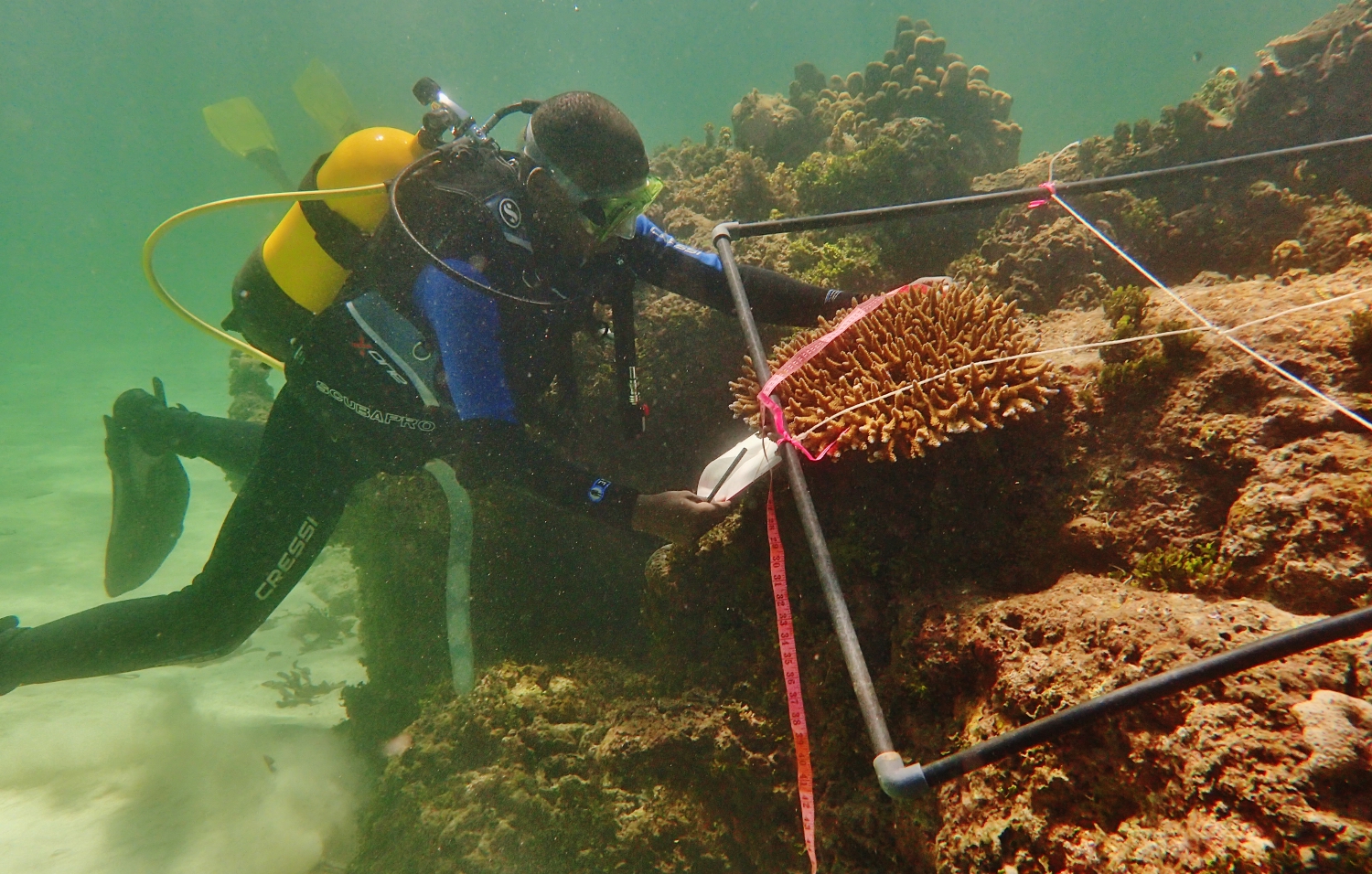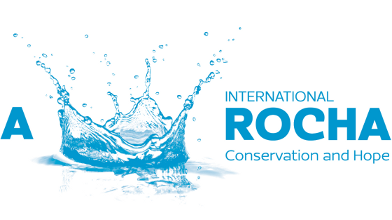Coral bleaching – what can we learn?
Watamu Marine National Park (just offshore from Mwamba, A Rocha Kenya’s Field Study Centre) is currently affected by coral reef bleaching. Marine biologists from all over the Pacific and Indian Oceans are reporting that corals are being stressed by warmer seas: this is one of the world’s worst bleaching episodes. Distressing reports from the Great Barrier Reef have had global coverage.
But why are some reefs not affected by warmer water? Why do some corals die, yet others recover? What’s the relationship between geographical location and water temperature? At present, our understanding of coral reef ecosystems and their resilience to damage is very limited.
Peter Musembi, our marine biologist at Mwamba, is monitoring Watamu reef along permanent transects to help answer some of these questions. This episode was anticipated, and so he began to record coral species and their health in February, and will monitor the effects at fortnightly intervals until July or August, by which time the water temperature should be more normal. He’s doing so in partnership with Coastal Oceans Research and Development in the Indian Ocean (CORDIOEA) and Kenya Wildlife Service. Read more about our marine research in Kenya.

Studying coral in Watamu Marine National Park, pre-bleaching
Small image: bleached coral (Peter Musembi)
